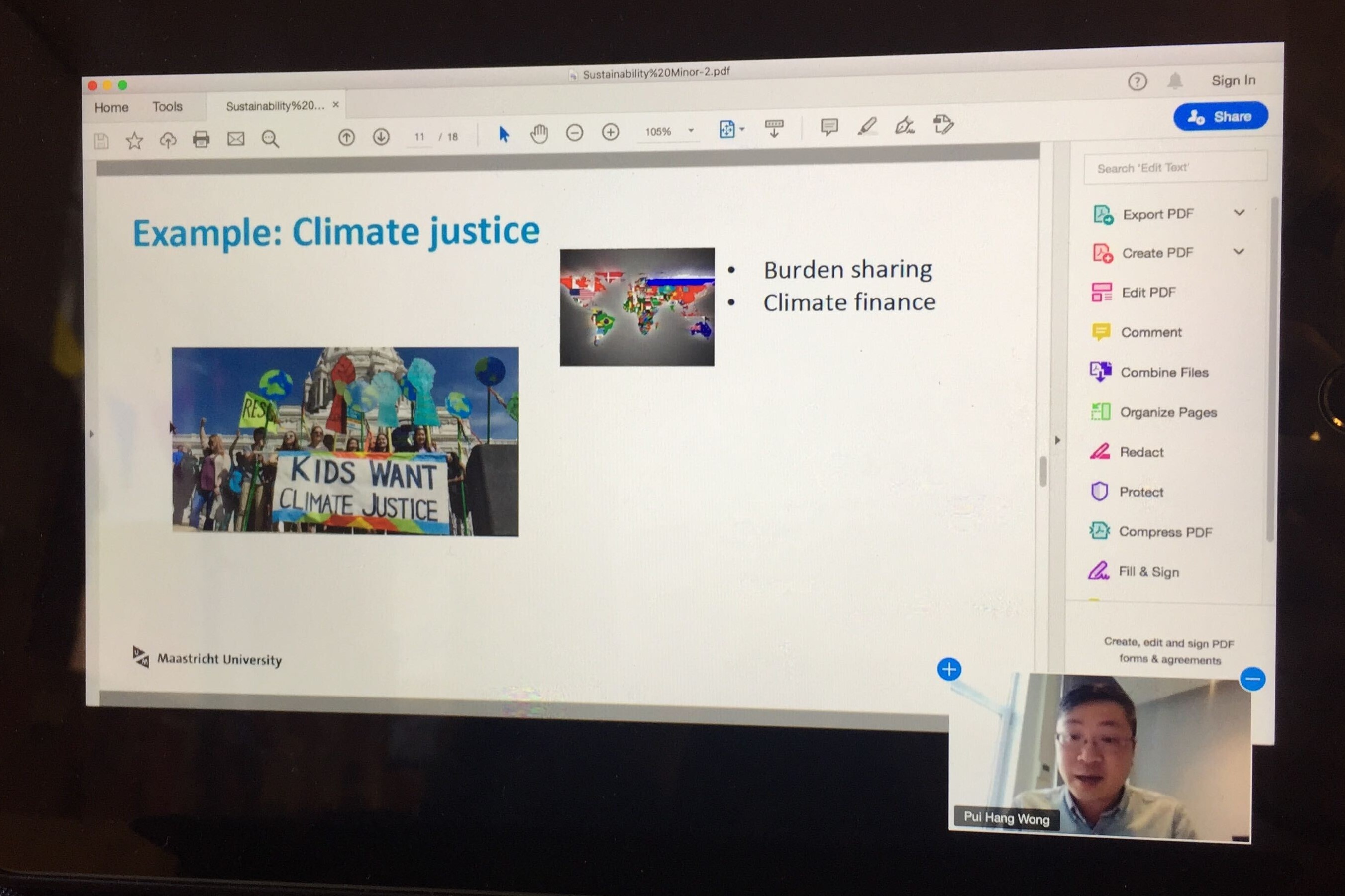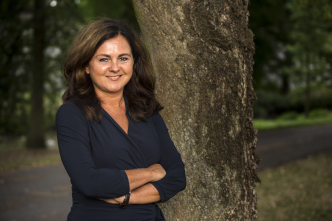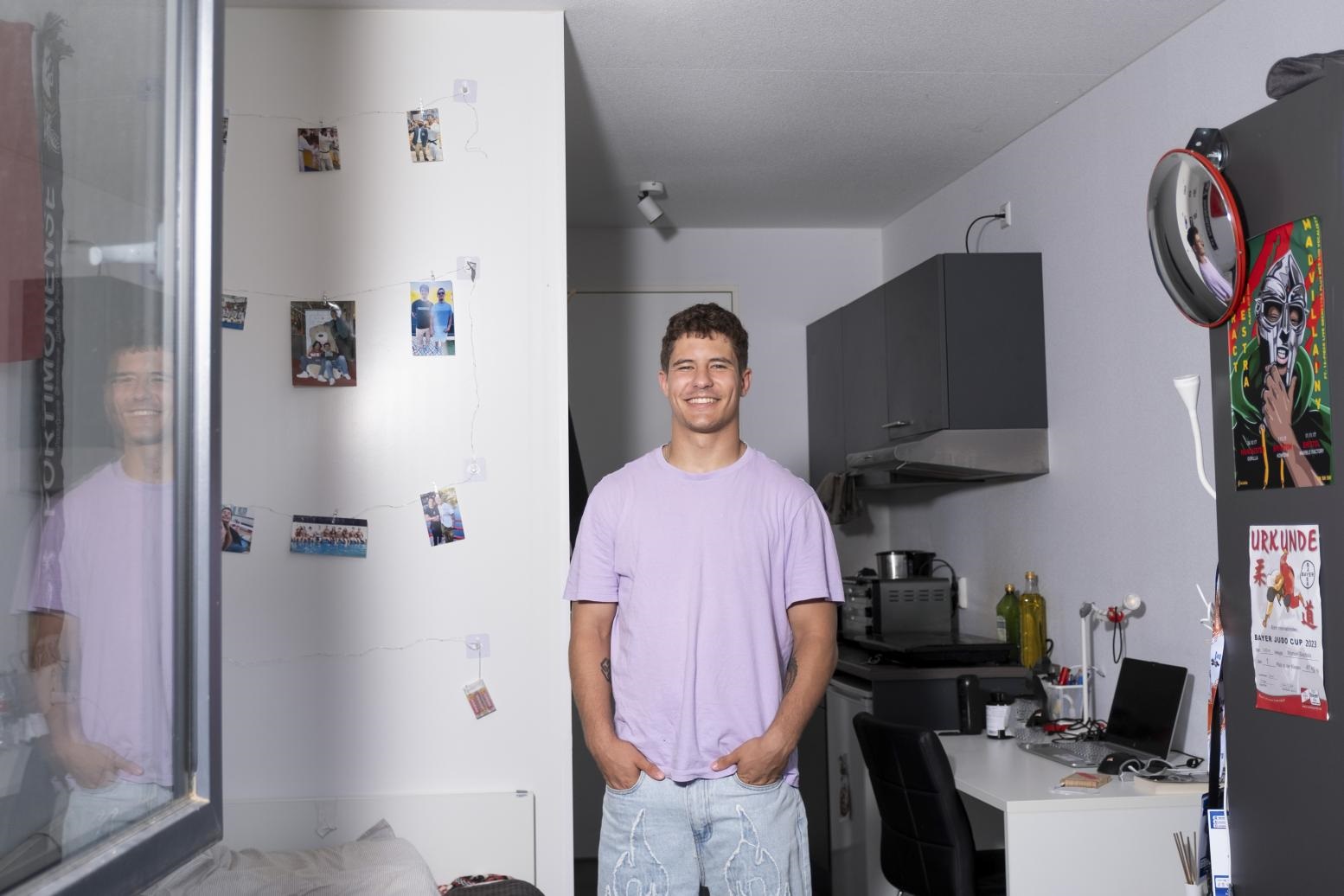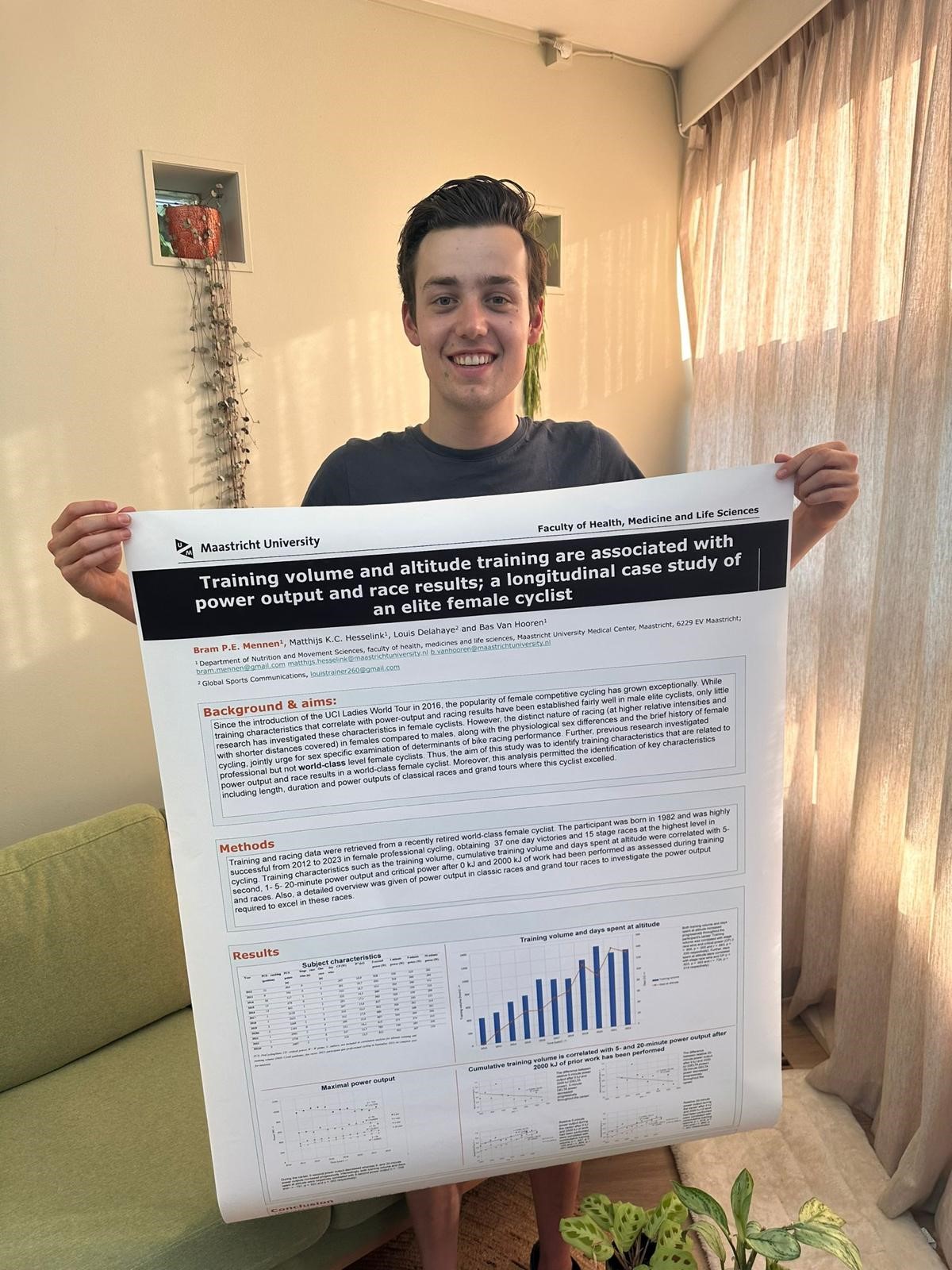Sustainability goes beyond “the green stuff”
Complex systems. It is a term often used when talking about sustainability. It means that when you push a button at point A, something might change at point Y. It’s about interlinkages between issues you might not even expect to take place. Well, that is how UM´s sustainability team Sustainable UM2030 approaches sustainability: sustainability is not merely about the environment, or ‘green stuff’. No, climate change and everything along with it affects our health, our behaviour, our politics and our economy. That is why when it comes to teaching about sustainability, you need an interdisciplinary team of teachers on board. Sustainable UM2030 organised a meeting in which teachers from various faculties presented their ideas for sustainability courses to students.

Above: the (online) meeting of researchers and students.
Sustainability at Maastricht University
Sustainability is not something you can teach in just one course. That is why Sustainable UM’s 2030 education team, Ceren Pekdemir and Ron Cörvers, are spearheading a UM-wide minor together with teachers, researchers and students from all faculties. In itself organising such a minor is a complex system as well, taking into account how differently each faculty is organised. Moreover, researchers from human behaviour might not know all the concepts that a political scientist uses for example. That also came to the surface during the previous meeting. Working in an interdisciplinary manner is quite a challenge, but lies exactly at the heart of training students to become sustainability professionals.
From the personal to the global level
“We need to understand the interdependencies between various disciplines when it comes to making the world more sustainable”, says Ceren Pekdemir. For example, climate change leads to less fresh water in warm climates, which can lead to major conflicts and migratory flows. Here you’ll need knowledge of climate change and public policy instruments. Or take the effect that pollution has on our health. Can we change our behaviour to use less polluting resources? To answer that question, you’ll need to know about health, behaviour and resources.
Moreover, in the minor currently under development students will get the chance to challenge their own behaviour and mindsets as well. The content courses of the minor will be accompanied by a track on sustainability competencies, which range from systems-thinking – which for instance encompasses the ability to recognize relationships and analyse complex systems, to self-awareness – which encompasses the ability to reflect on one’s own role in society, from a local to a global perspective. After all, taking this minor should also enable students to acquire the tools to rethink and reshape current (un-) sustainability practices.

“Students and organisations are demanding for this knowledge and these competencies“, says Sustainable UM2030 taskforce coordinator Anja van Bogaert. “Our aim of the Sustainable UM2030 programme is to integrate sustainability into the DNA of our university. Regarding education at UM that means we will first focus on the possibility of a UM wide minor for all bachelor students. Within the Green Impact programme we focus on strengthening competencies for sustainability for staff members as well. Later on, more integration of sustainability in education programmes will follow, but that is almost a natural process because other staff members are already thinking or working on it as well specific for their programme, because our world is asking for it”.

Students are involved in the design
Exactly because students are asking for more sustainability education at UM, students have been involved in the design of the minor from the start. Students have been asked to fill in a survey on which topics they prefer last year. In the most recent working group session in the beginning of April – held online in light of the current Covid-19 measures – students from a variety of programs and faculties joined to provide their feedback on the content of the minor. Anna from the Faculty of Law, for example, found the set-up of the minor very promising but is sad that it will only be offered as of summer 2021 – a year too late for her to take it, but Simon from FASoS is glad that future students will enjoy a good minor on sustainability.
By Eliza Marx & Svea Grünkorn
The Sustainability minor at Maastricht University started in 2021. This minor was built by teaching and research staff of all faculties at Maastricht University with various academic backgrounds. The minor is composed of a unique collection of courses, including skills modules in which students develop their competencies for sustainable development. The minor also provides an optional research project on sustainability. The minor is accessible to all students and aims for a unique cross-faculty learning experience.
Also read
-
The area on the Sorbonnelaan in the Maastricht neighbourhood of Randwyck looked somewhat bare and remote about two years ago. This was mainly due to the modular and temporary appearance of the student houses that were quickly built there. Meanwhile, the area is increasingly taking on the character...
-
Two Law PhD candidates of the Maastricht Faculty received awards for their doctoral theses during the 21st International Congress of the International Association of the Penal Law in Paris.
-
Imagine this: as a newly graduated master's student, you get to share the insights you gained during your research at an international conference. This happened to Bram Mennen. At the end of June 2024, he presented the results of his thesis on the training data of top cyclist Annemiek van Vleuten at...


